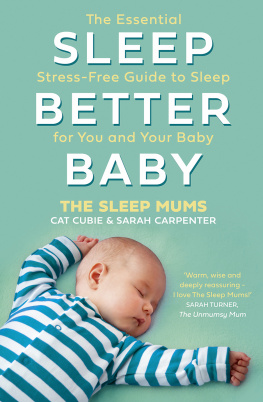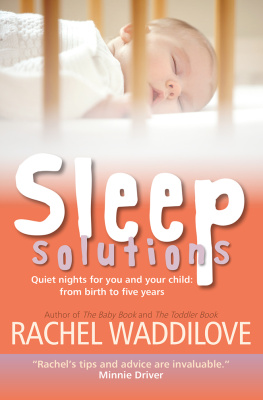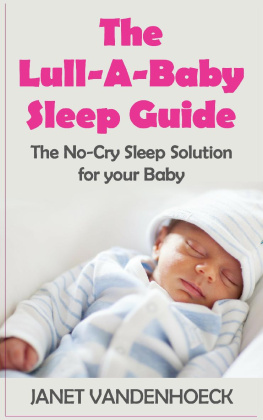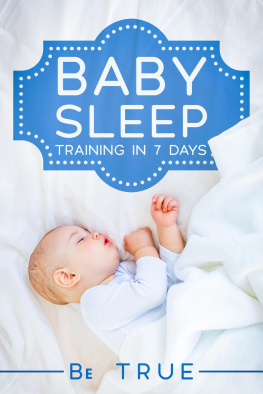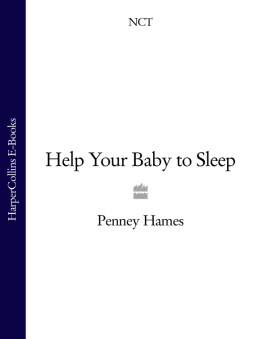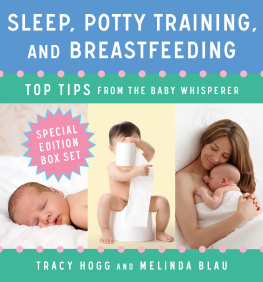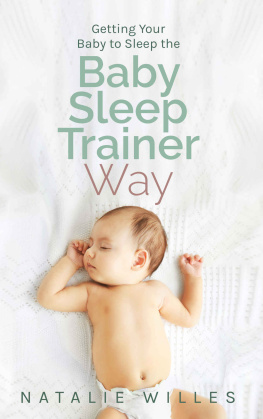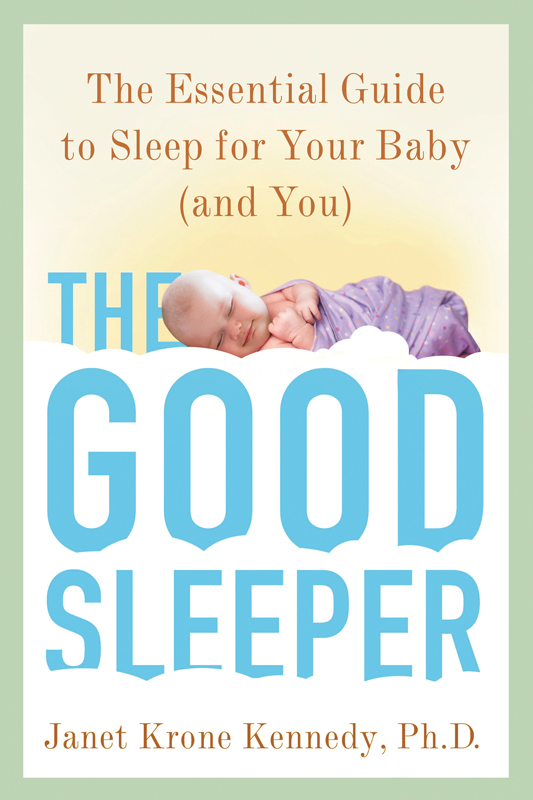Contents
Guide

The author and publisher have provided this e-book to you for your personal use only. You may not make this e-book publicly available in any way. Copyright infringement is against the law. If you believe the copy of this e-book you are reading infringes on the authors copyright, please notify the publisher at: us.macmillanusa.com/piracy.
For Randy
And for I and L, our two great sleepers
Contents
Of all the anxieties that plague expecting parents as the due date approaches, fear of sleep deprivation is among the most intense. Everyone knows that the first several weeks are the most difficult. But it is actually what happens after those weeks that determines how well you and your family will function during the first year and beyond.
My clients often ask about my own children. And, yes, they are great sleepers. I was dedicated to shaping their sleep habits from the start, partly because I needed them to sleep. I am not one of those people who can function without a decent nights rest.
When I was pregnant with my son, fear of months (or years) of exhaustion inspired me to put together quite a sleep library. At the hospital where I was working, Id already spent the prior year and a half immersing myself in research to develop a treatment program for adult and geriatric insomnia. While child and adult sleep differ in many ways, certain common principles apply (see ). In reading about infant sleep, I was most intrigued by Marc Weissbluths model of keeping babies well rested and preventing them from becoming overtired. This became the single most important parenting strategy that my husband and I employed.
We tried to ignore the raised eyebrows of friends and relatives who could not believe how much our son was sleeping. I noticed that what often seemed like common sense to me was counterintuitive to others. But soon it became apparent to them that my trick was working, and I started helping friends get their kids sleep on track. Pregnant with my daughter, I began thinking about opening a specialty practice to help other new and expecting parents get off on the right foot. I developed a class called Raise a Good Sleeper and later launched my clinical practice, NYC Sleep Doctor, to work with families stuck in a cycle of bad sleep. Since then, Ive helped hundreds of families make simple changes to improve their sleep, and Ive supported them through the process of making the difficult ones.
It is my firm belief that good sleepers are not born but raised. In this book you will find the basic information you need to raise a good sleeper. There are plenty of sleep manuals on the market to guide you through the specifics of various sleep-training strategies. The trouble is, there is no one-size-fits-all technique. Every family is a complex mix of individual temperaments and philosophies. The sheer number of options is overwhelming, deterring many parents from even trying to read up on the subject. And parents who do delve into the literature too often give up because they cannot agree on a strategy or because they dont fully understand the reasoning behind it.
This book is my effort to help people sift through the vast and often confusing information out there and identify strategies that make sense. My goal is to give you a fundamental grasp of infant sleep: how it works, how much is needed, and how to shape good habits. Understanding these principles will help you figure out which strategies will work for you and your family.
In my work, I insist on having parents work together to create a plan. It takes a team effort to stay focused and consistent. I recommend that you read this book together and discuss your priorities and fears before the baby is born. Once he or she arrives, you wont have time to read, digest, discuss, plan, or do much more than cope. Of course, your best-laid plans will have to be adjusted and calibrated once your baby arrives. But it is well worth doing the advance planning. The quality of your babys sleep will have a tremendous impact on your quality of life.
If you did not plan ahead, you certainly arent alone. Reading sleep manuals is never high on most expecting parents list of priorities. If you and your child are stuck in a cycle of bad sleep, you are probably doing whatever is necessary just to get through each day and night. But your coping strategies might not be improving the situationand they could be reinforcing the problem. Once youre mired in it, its very hard to decide which strategy will lead you out.
Having a good sleeper is not about luck or genes; it is a part of raising a family, and it requires skill, knowledge, and dedication. It is about developing the confidence to identify problems and get back on track quickly.
My children are great sleepers, but they have hit the same bumps in the road that all children do. We have dealt with colic, crying, bedtime battles, early waking, illness, repeated pacifier replacement, room-sharing issues, overstimulation, and more. Sometimes we have struggled to know how to respond, but when we make a wrong turn, we go back to the basics and change course. This book will give you those basics, too.
Since opening my private practice, NYC Sleep Doctor, I have entered new parents homes and lives when they are at their most confused and vulnerable. I have listened to hundreds of exasperated couples as they describe their love for a baby whose sleeplessness is threatening their confidence as parents, their sanity, and even their marriage. They describe how lost they feel as they listen to friendly advice and pore over countless books about sleep. But by the end of our 90-minute visit, they have a firm understanding of what they have missed all along: the simple facts of infant sleep and how to use that knowledge to teach their baby to sleep.
Its not particularly complicated, yet no one seems to have figured out how to explain these concepts and strategies to parents. Pediatricians assess virtually every developmental milestone except sleep. Books, as I will show, are confusing and make promises they cant deliver on. Friends, family, and parenting coaches give advice based on their personal experience, which does little to reassure frightened parents who fear doing psychological or physical damage to their child.
In my practice, I have immersed myself in the world of infant sleepthe science and the psychology of it. When I first started charging fees for my services, I had the usual crisis of confidence: Was I really doing something for these families that they couldnt do themselves? Wasnt this information so straightforward that anyone could figure it out? What I found, as enthusiastic reports came back from parents and as their friends started hiring me, was that what seemed common sense to me was not evident to most parents. I also discovered that I could transform the necessary information into common-sense guidelines for my clients.
I spent eight years at the Manhattan Veterans Affairs Medical Center helping patients suffering from arguably the most challenging of sleep issues. Through my experience working with veterans suffering from posttraumatic stress disorder and other serious mental illnesses, I learned how to relate scientific and clinical knowledge to lots of very tough real-life situations. I taught psychology interns how to be concise, responsible writers. I am known among my colleagues and friends as a straight talkera trait that has gotten me into trouble from time to time but has also been one of my defining professional qualities. My colleagues refer patients to me who need a no-nonsense therapist, one who wont mince words. My presentations are well edited and concise, focusing on the essential points I need to communicate.


